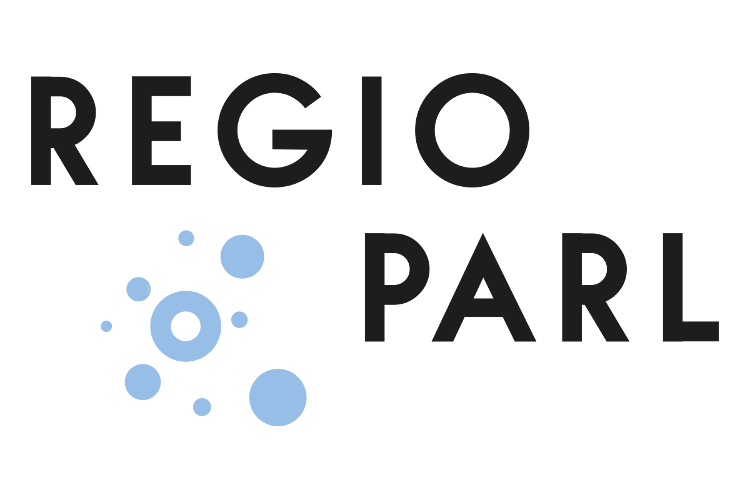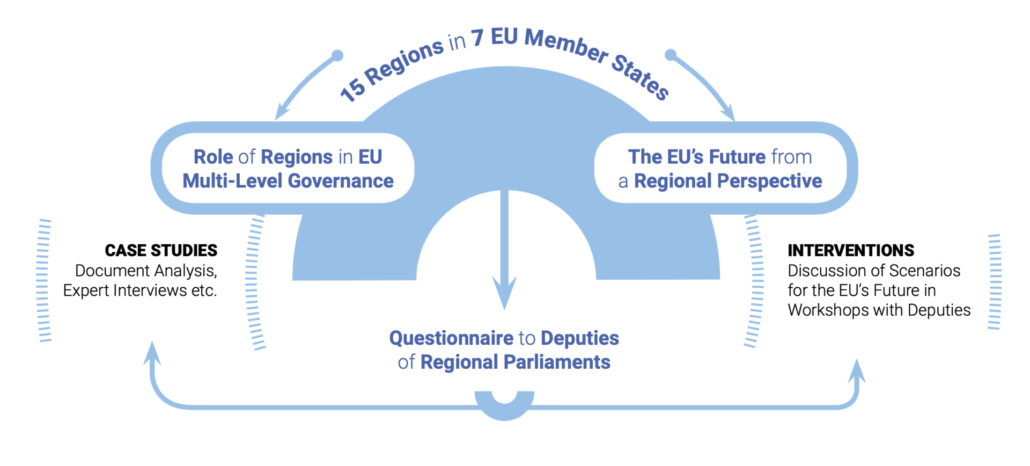Paper presentations at international academic conferences
2022 Sarah Meyer and Mario Wolf: Regional MP’s cooperation efforts in EU affairs from a comparative angle – at the ECPR General Conference, The EU and Sub-National Politics (22.-26. August).
2022 Sarah Meyer, Mario Wolf and Sara Kikić: The Politicization of EU Issues in Sub-state Parliaments: Europeanization, Party Politics, or Regional Context? – at EWIS 2022: the 9th European Workshops in International Studies (06.-09. July)
2022 Sarah Meyer, Mario Wolf and Paul Reimers: Getting involved in EU affairs? Regional parliaments’ participation in the EWS – at the 11th Biennial Conference of the ECPR Standing Group on the European Union (10.-12. June)
2022 Elisabeth Donat, Simon Lenhart and Sara Kikić: (My) region first: dimensions of Euroscepticism and populism at the subnational level in times of crisis – at the 11th Biennial Conference of the ECPR Standing Group on the European Union (10.-12. June)
2022 Elisabeth Donat and Simon Lenhart: A long way towards European Integration: EU’s future debate from the perspective of subnational politicians – at the Interdisciplinary Trans-Nordic Conference on European Differentiated Integration (2. June)
2022 Elisabeth Donat: Looking for allies – Regional Parliaments strategies for engaging in EU affairs – at the ESA RN 15 Midterm Meeting 2022: Global Sociology: theory and practice in the 21st century (5. May)
2021 Mario Wolf and Sarah Meyer: Getting involved despite obstacles? Regional MPs’ cooperation efforts in EU affairs – at the Austrian Political Science Day 2021 (26 November)
2021 Sarah Meyer, Mario Wolf and Sara Kikić: EU issue-salience in regional parliaments: Europeanization, party politics, or regional context? – at the ECPR General Conference, The EU and Sub-National Politics (30. August to 03. September).
2021 Paul Kindermann and Sarah Meyer: The Future of EU Democracy From a Regional Perspective. Views From Focus Groups With Regional MPs – at the ECPR Joint Sessions, Transnational Parliamentarism: Institutional Variety, Political Effects, and Representation (26. – 27. May).
2021 Henning Deters: German State Legislatures in the Post-Rüffert Reform of the Posted Workers Regime – at the ECPR Joint Sessions, Transnational Parliamentarism: Institutional Variety, Political Effects, and Representation (26/27 May).
2021 Paul Kindermann: Conceptualising the (potential) role of regional parliaments in democratising the EU. An analytical framework – at the International (digital) conference: From takers to shapers? Challenges for regions in a dynamic EU polity (6/7 May). University of Tübingen.
2021 Sarah Meyer and Mario Wolf: Getting involved despite obstacles? German regional MPs’ networking activities on EU affairs – at the International (digital) conference: From takers to shapers? Challenges for regions in a dynamic EU polity (6/7 May). University of Tübingen.
2021 Gabriele Abels, Martin Grosse Hüttmann, Sarah Meyer, and Simon Lenhart: The Committee of the Regions and the Conference on the Future of Europe – at the International (digital) conference: From takers to shapers? Challenges for regions in a dynamic EU polity (6/7 May). University of Tübingen.
2021 Elisabeth Donat and Simon Lenhart: Europeanization of citizens vis-a-vis regional politicians at the Authors Workshop for the Special Issue “Europeanisation and identities” (25/26 March). Online Workshop.
2020 Elisabeth Donat and Simon Lenhart: Das Stadt-Region-Nation-Europa Verhältnis aus der Sicht regionaler Abgeordneter at the (digital) Conference “Provinz postmigrantisch” (20/21 November). PH Schwäbisch Gmünd and MIGS.







